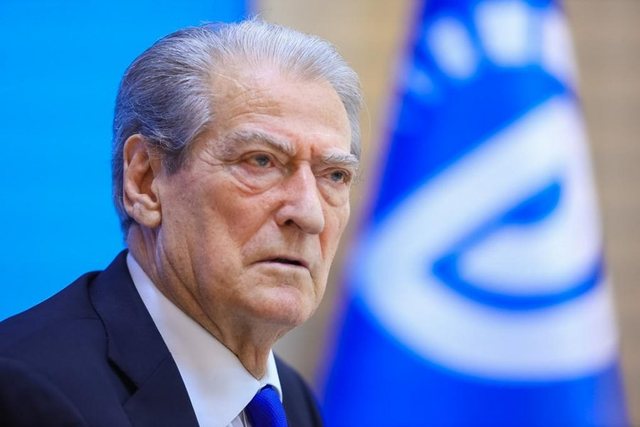Berisha threatens journalists amid corruption allegations

Photo: Sali Berisha
During a press conference from his home while under house arrest, Sali Berisha threatened journalists reporting on his corruption case, accusing them of being “misused” by SPAK, the Special Prosecution Against Corruption. Without naming specific journalists, Berisha stated, “I will treat [these journalists] the same as members of the criminal organization, SPAK of the [Socialist] party”.
Why is this significant
Berisha has a long-standing record of targeting critical media and journalists, but his latest threats against those investigating his legal troubles are especially alarming. Issuing such menacing statements while under house arrest raises serious concerns about the lack of judicial oversight. These threats not only undermine press freedom but also pose potential risks to the integrity of the legal process, as they could intimidate witnesses and others involved in his case. The authorities’ apparent tolerance of this behavior is troubling and calls into question the enforcement of judicial conditions.
Background
Berisha is currently facing allegations of corruption detailed in a SPAK dossier, which outlines his alleged misuse of power and financial misconduct. Media outlets, including Shqiptarja.com and Tema, led by journalists lCarlo Bollino and Mero Baze have been publishing key findings from the dossier, exposing how Berisha and his network allegedly exploited state institutions for personal gain.
Journalists’ response
Carlo Bollino, often a target of Berisha’s verbal attacks, responded to the threats by expressing pride in his investigative work. Bollino said, “As a journalist, I am proud to be compared in investigative capacity with SPAK, recognized by the U.S. and EU as a model of independent justice capable of fighting corruption in Albania.” Bollino emphasized that his work is based on objective analysis of public documents, contrasting it with Berisha’s baseless accusations. He also pointed out the double standards at play—while Berisha demands evidence from his accusers, he provides none for his own claims against the press.
Mero Baze, who was physically assaulted in 2009 after publishing critical reports on Berisha’s government, condemned Berisha’s latest threats as part of a long-standing pattern of intimidation. Baze’s assault was widely seen as orchestrated by Berisha’s allies, underscoring the risks journalists face when challenging powerful figures in Albania. Baze stated that Berisha’s approach has always been to “threaten and attack” when confronted with facts that paint him in a negative light.
Poli Hoxha, another journalist targeted by Berisha, also condemned the threats, highlighting how Berisha’s tactics are designed to silence dissent and suppress journalistic freedom. Hoxha noted that Berisha’s threats are not just against individual journalists but represent an attack on the freedom of the press in Albania.
The bigger picture
Berisha’s threats are part of a broader strategy to control the narrative and silence critical voices. These attacks are not isolated incidents but reflect a consistent pattern of using intimidation to avoid accountability. How effective this strategy has been is revealed by the meek reactions on his outbursts by most media and press organizations.


